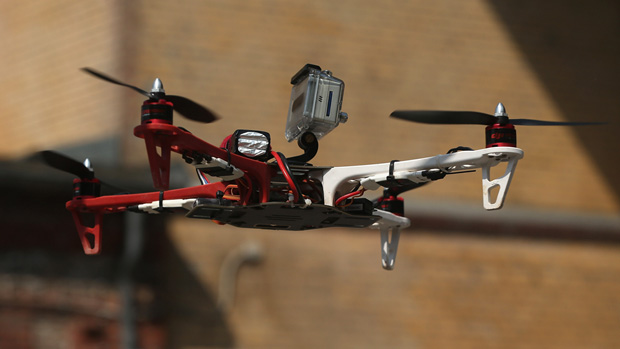Indian police buy pepper spray drones to control unruly mobs
Police in Uttar Pradesh want to use drones for crowd control and keeping track of criminals

A free daily email with the biggest news stories of the day – and the best features from TheWeek.com
You are now subscribed
Your newsletter sign-up was successful
Police in the northern Indian state of Uttar Pradesh have bought five drones capable of showering pepper spray on disorderly citizens.
Uttar Pradesh has previously hired drones for surveillance in "sensitive" parts of the state, but the Times of India says the gadgets will now be used to "control unruly crowds".
Yashasvi Yadav, senior superintendent of police, told the Press Trust of India: "We have purchased five drone cameras with capacity of lifting two kg weight. They can be used to shower pepper powder on an unruly mob in case of any trouble."
The Week
Escape your echo chamber. Get the facts behind the news, plus analysis from multiple perspectives.

Sign up for The Week's Free Newsletters
From our morning news briefing to a weekly Good News Newsletter, get the best of The Week delivered directly to your inbox.
From our morning news briefing to a weekly Good News Newsletter, get the best of The Week delivered directly to your inbox.
Police in the state's capital city of Lucknow, about 300 miles east of Delhi, have used drones to take aerial images during a number of festivities, including Republic Day and Muharram, the first month of the Islamic calendar.
"We had used drone cameras and they were so effective that we have decided to purchase them instead of hiring them. They will be used throughout the city for aerial surveillance," said Yadav.
The gadgets, which can fly up to 600 metres high in a one kilometre radius, would help with checking crimes and keeping track of criminals. Lucknow police are likely to be the first in the country to own the high-tech surveillance gadget, he added.
But Lucknow is apparently not the first police force in the world to purchase drones with the intent of quelling dissent.
A free daily email with the biggest news stories of the day – and the best features from TheWeek.com
According to Sputnik News, drone maker Desert Wolf sent its "Skunk Riot Control Copter" – equipped with four high-capacity paintball barrels and room for 4,000 pepper balls – to Turkey and South Africa.
Each barrel can release up to 20 balls per second to "control unruly crowds without endangering the lives of the protesters or the security staff".
Some police forces in the UK have tried out drones as a cheaper alternative to the technology used in helicopters for surveillance and to track down suspects on the run.